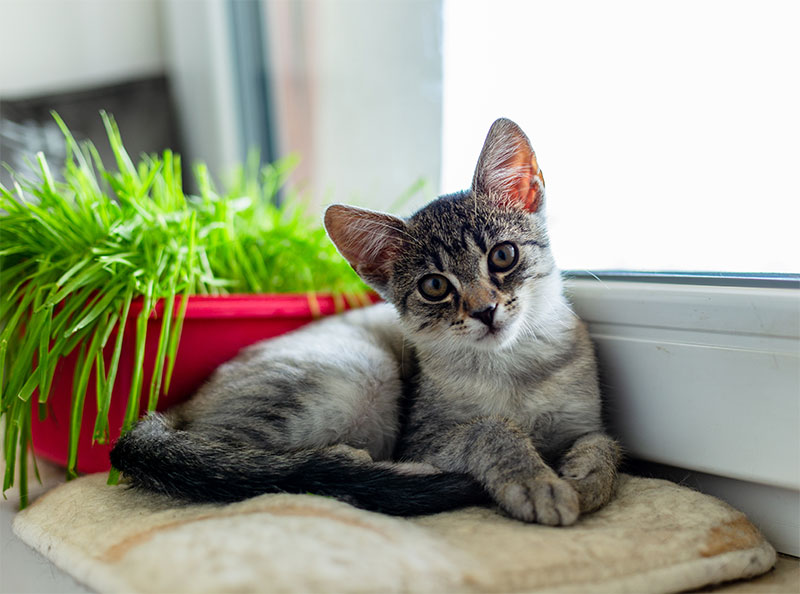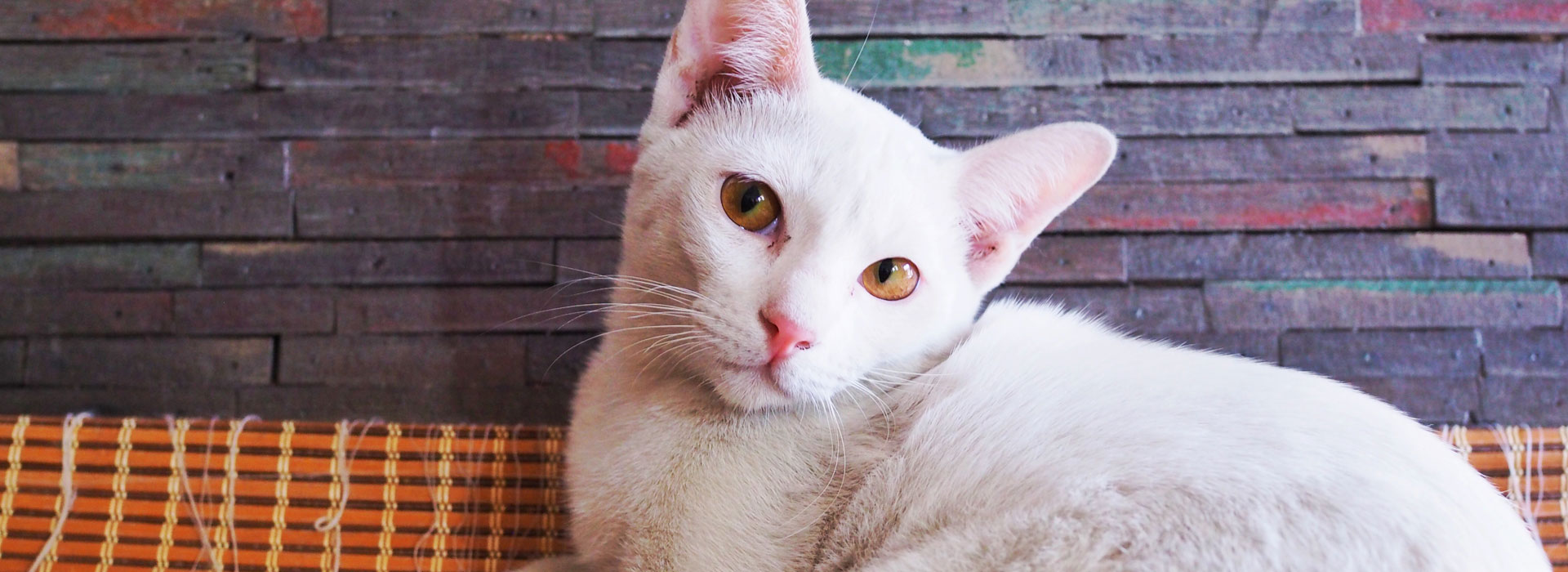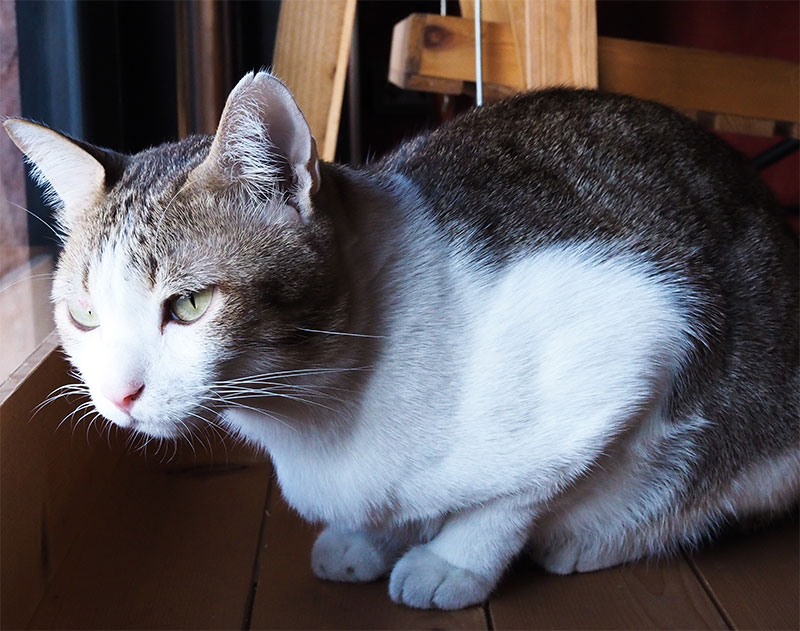
What You Should Know About Feline Leukemia and FeLV Screening
November is Pet Cancer Awareness Month. Feline leukemia (FeLV) frequently comes up when talking about cancer in pets because most people do not realize that feline leukemia is not actually cancer. In people, leukemia is a type of cancer of the bone marrow and blood. FeLV is a contagious virus that affects cats.
Although FeLV is not actually a type of cancer, it can lead to cancer in cats, so it is still a highly appropriate topic for Pet Cancer Awareness Month.
About Feline Leukemia
Feline leukemia is one of the most common infectious diseases in cats, with an estimated 2-3% of cats in the United States infected. Cats can contract FeLV by exposure to an infected cat’s saliva, mucus (nasal secretions), feces, urine, and milk.
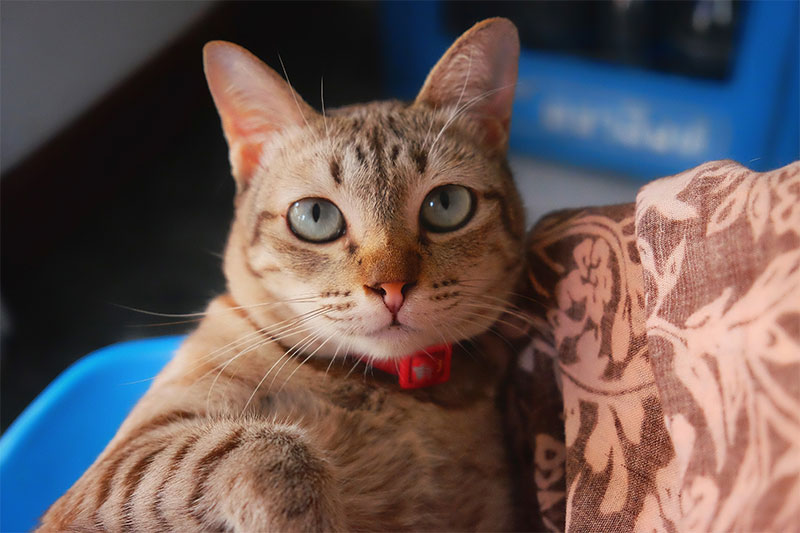
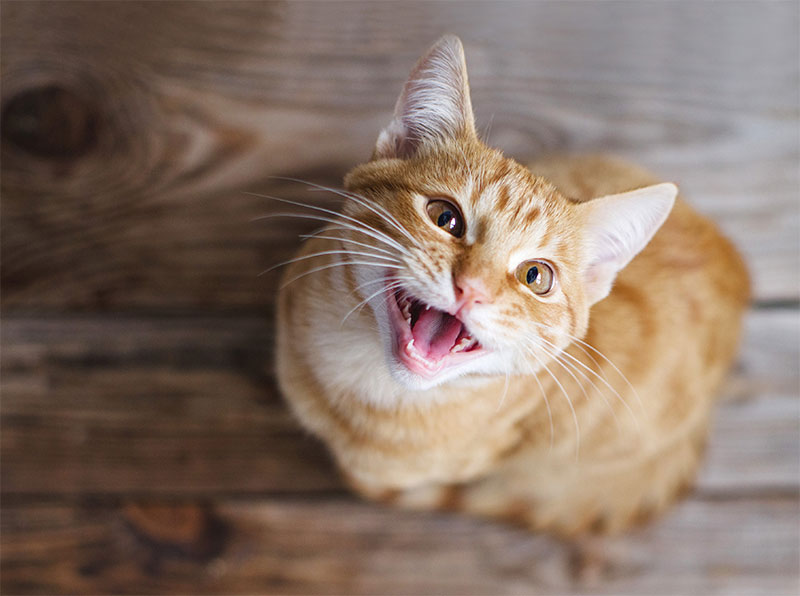
Feline Leukemia Complications
In most infected cats, feline leukemia eventually leads to early death. It’s the most common cause of feline cancer. It can also cause several different blood disorders and lead to an immune deficiency that renders a cat highly susceptible to other infections that would not normally affect an uninfected cat.
Signs and Symptoms of Feline Leukemia
When first infected, most cats do not exhibit many signs of illness. Over time, however, an infected cat will suffer recurring illnesses and might exhibit the following signs and symptoms:
- Appetite loss
- Weight loss
- Poor coat condition
- Swollen lymph nodes
- Persistent fever
- Pale gums
- Swollen gums and mouth sores
- Skin infections
- Urinary and bladder infections
- Respiratory infections
- Persistent diarrhea
- Seizures and neurological disorders
- Behaviour changes
- Eye issues
- Reproductive failures

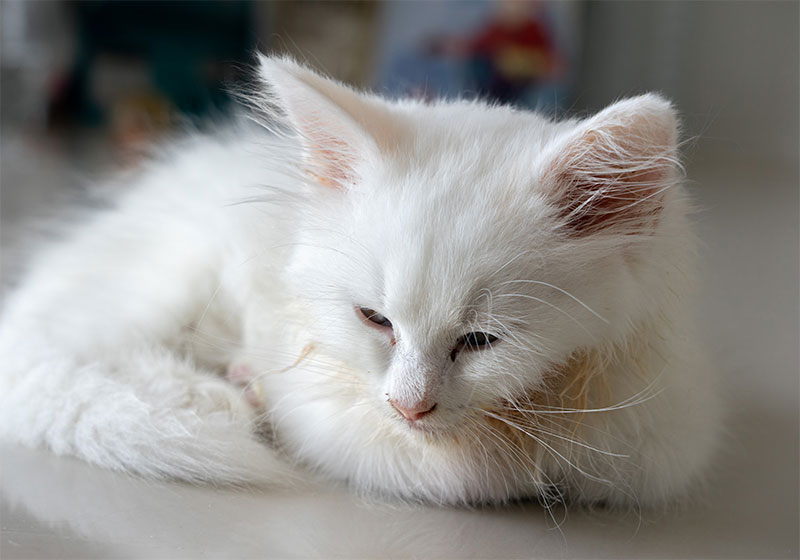
Feline Leukemia Diagnosis and Treatment
Feline leukemia can be diagnosed with a simple blood test. Although some therapies have been shown to reduce the amount of virus in infected cats, there is, unfortunately, no effective cure or universally effective treatment.
FeLV Prevention and Screening in Winnipeg
Since FeLV is highly contagious and has no cure, the most effective way to protect your cat from FeLV is with prevention. FeLV prevention can be achieved most effectively by keeping your pet from being exposed to cats that are infected with FeLV and by getting your cat vaccinated. The FeLV vaccination is not a core vaccine and is not automatically administered to all cats. If your cat spends time outdoors or potentially in the vicinity of other cats, we strongly encourage you to vaccinate for feline leukemia. The vaccine is not 100% effective, but it can reduce your cat’s overall risk.
To learn more about feline leukemia, non-core vaccinations, and screening for feline leukemia, we welcome you to schedule an appointment at Sage Creek Animal Hospital today.
